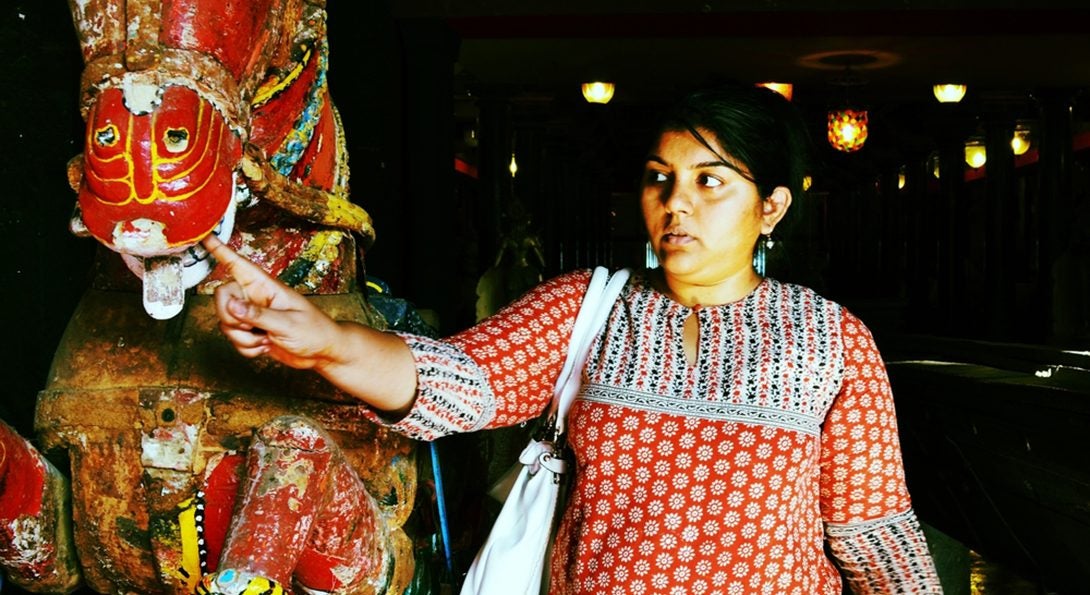Deepthi Murali receives the Outstanding Dissertation Award from the Graduate College

Deepthi Murali's dissertation is a recipient of the Outstanding Dissertation Award
Graduate College has announced the recipients of this year's Outstanding Thesis and Dissertation Awards across the University. Dr. Deepthi Murali, who received her PhD degree in Art History from our department in 2020, was elected to be a recipient of the Outstanding Dissertation Award in Arts & Humanities with her dissertation “Transculturality, Sensoriality, and Politics of Decorative Arts of Kerala, India.” (UIC, Chicago, 2020). Congratulations Deepthi!
Dr. Deepthi Murali is currently Postdoctoral Research Fellow, Roy Rosenzweig Center for History and New Media at George Mason University.
Here is a summary of Dr. Murali's dissertation, which was advised by Prof. Catherine Becker, Associate Professor of South and Southeast Asian Art and Architecture at UIC:
"This dissertation examines decorative art objects produced or used in the kingdoms of Travancore and Cochin in South India. Tracing the transcultural nature of their production and use, I argue that art objects were agentive interlocutors in colonial political and cultural processes, the agency of these objects realized through their ability to generate embodied and intersensorial responses in their makers and users. My dissertation investigates their lives over the span of 250 years: from raw matter to embodied art objects (used for sitting, sleeping, traveling, beholding), and their continued intersensorial user interactions (through seeing, touching, smelling). Through detailed examinations of objects that were once powerful colonial actors and are at present contentious players within postcolonial identity constructions, I highlight the transient nature of global/local cultural dialogs that transmute practices of kingship, identity, and modernity. My dissertation explores decorative art objects as nodes within transcultural processes; each chapter presents a case study of how things and humans interact to form networks through which littoral artistic processes, performative kingship, colonial diplomacy, artistic identities, and decolonization practices are engendered, sustained, or resisted."